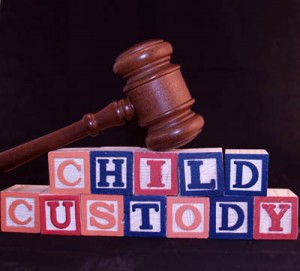 Parties to divorce cases should not during the course of the divorce discuss these proceedings with their children. However, after the divorce is concluded there is some information that should be passed on to children.
Parties to divorce cases should not during the course of the divorce discuss these proceedings with their children. However, after the divorce is concluded there is some information that should be passed on to children.
Children Should Not Be Blamed For The Divorce
Children sometimes feel their actions and activities are partly to blame for their parents getting divorced. Children naturally love both of their parents. The breaking up of the marriage can cause the children to be stressed. It is important that both parents make it clear to the children they had no fault in causing their parents to be divorced. Divorces take place for many different reasons. Both parents should help the children avoid feeling they caused the divorce.
The Parents Will Have Separate Residences
The children should be made aware that as a result of the divorce the parents will be permanently occupying different residences. If the children believe the parents may be getting back together, they may cling to this issue, or seek to help the parents get back together. The parents should make it clear to the children the divorce is final and the parents are going to be moving forward separately with their lives.
Both Parents Still Love The Children
It is extremely important the children be made aware that both parents still love them very much. The divorce is not their fault and it should not interfere with their love and relationship with both of their parents.
Both Parents Will Be Spending Time With The Children
There is often a settlement agreement or an agreement in a transcript in divorce cases. These agreements are incorporated by reference into the Judgment of Divorce. The details with regard to each parents’ parenting time with the children are included in these documents. The children should be made aware each of the parents have a right to spend time with them, participate in activities with them and be generally an affirmative part of the children’s lives.
About the Author
 Elliot S. Schlissel, Esq. is the managing partner of Schissel DeCorpo LLP. The firm represents parties in divorce lawsuits and Family Court cases throughout the Metropolitan New York area. The firm offers free consultations and can be contacted at 800-344-6431 or e-mailed at Elliot@sdnylaw.com.
Elliot S. Schlissel, Esq. is the managing partner of Schissel DeCorpo LLP. The firm represents parties in divorce lawsuits and Family Court cases throughout the Metropolitan New York area. The firm offers free consultations and can be contacted at 800-344-6431 or e-mailed at Elliot@sdnylaw.com.

 In the State of New York the parties seeking to be divorced can file for a
In the State of New York the parties seeking to be divorced can file for a  In late 2015, the law in New York concerning
In late 2015, the law in New York concerning 
 In a case before Supreme Court Justice Sharon Gianelli, in Supreme Court Divorce Part in Nassau County, Judge Gianelli granted residential custody to a mother in spite of the fact the father has a nicer home, greater financial resources, space in his home for the children and he was retired which gave him a significant amount of time to spend with the parties’ children.
In a case before Supreme Court Justice Sharon Gianelli, in Supreme Court Divorce Part in Nassau County, Judge Gianelli granted residential custody to a mother in spite of the fact the father has a nicer home, greater financial resources, space in his home for the children and he was retired which gave him a significant amount of time to spend with the parties’ children. Elliot S. Schlissel is a
Elliot S. Schlissel is a  Justice Leonard Steinman sitting in a Supreme Court Matrimonial Part in Nassau County recently had a case before him where the husband claimed the wife had turned his sons against him. He also claimed the wife was trying to turn his daughter against him too. During this divorce case the wife argued the husband was a deadbeat father. She claimed he attempted to “starve” her and the children by intentionally taking action to have his income reduced. Justice Steinman found the sons had “by deeds and words vociferously proclaimed their hatred of their father.” He also noted the daughter had also expressed some hostility towards her father.
Justice Leonard Steinman sitting in a Supreme Court Matrimonial Part in Nassau County recently had a case before him where the husband claimed the wife had turned his sons against him. He also claimed the wife was trying to turn his daughter against him too. During this divorce case the wife argued the husband was a deadbeat father. She claimed he attempted to “starve” her and the children by intentionally taking action to have his income reduced. Justice Steinman found the sons had “by deeds and words vociferously proclaimed their hatred of their father.” He also noted the daughter had also expressed some hostility towards her father.
 Elliot S. Schlissel is a
Elliot S. Schlissel is a  A father, J.M., sought
A father, J.M., sought 





